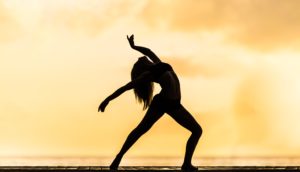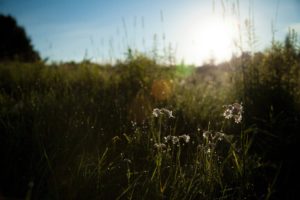by Jenny Rose | Jul 20, 2017 | A Flourishing Woman, Body

Photo by Leon Liu on Unsplash
Last night we danced. I’m patiently and persistently attempting to root a dance group into this community. It’s taking time, but I hope in the end to have a healthy core of four or five women with whom to share this sacred practice.
As I danced, I remembered an old friend with whom I danced in Colorado. She used to often say, at the end, as we sat in a circle holding hands, “It’s so good to be in the body.”
Not in the head, where family and other relationships, financial and political complexities, expectations, rules, to-do lists and all our internal voices reside, but in the body, right now.
Our bodies contain a childlike innocence and a wisdom beyond words. They communicate to us the truth about how things are with us via feeling and sensation. Patiently, they carry us through our lives, our most loyal and faithful companions. Persistently, we neglect, abandon and abuse them.
Somewhere along the way, we’ve learned to reject, be ashamed of and hate our physical being and experience. Now we’re to the point where bodily functions tied to being biologically female are a matter of political incorrectness and a hate crime. Social pressure is increasing to eradicate the very words that define female physical experience.
But dance is for everybody in every body, and the spiritual practice of dance has taught me to honor, protect and care for my physical self in new ways. There are no labels in dance, no gaslighting, no power-over that seeks to diminish or limit my physical history or expression. Dance is wordless, so there are no language police. Dance is the freedom to belch, to fart, to wiggle, to jiggle, to giggle, to cry, to shout, to play and to sweat.
Allowing my body to be and joyfully inhabiting it has been a powerful act of self-love. It means allowing my hair to grow as it will, where it will, in the color it is. It means moving with dignity and pride. It means gratitude, for my life is a journey mapped onto my flesh. Every mole, freckle, stretch mark, scar, lump, bump, line, wrinkle and vein holds part of my story, and I honor story.
Being in my body is a powerful act of surrender, not to what the culture says I must be or not be, not to what I think I should embody or not embody, but to what I am. Simply that. The unique, miraculous complex system of genetic material, living tissue, viruses, bacteria and chemical processes that I am.
Allowing my body to be is a peace treaty. My body is not for the pleasure or evaluation of others. It’s not for sale. My body and I owe nothing to anyone, not explanation, apology, conformity, obedience and especially not shame. I refuse to go to war over gender, sexuality or political correctness ideology. I decline to support or participate in self-hatred or hatred of other bodies. The power of my body transcends the judgements, criticisms and opinions of others.
The deepest language I know is of the body. Words are inadequate to my passion, to my love, to my creativity. Spoken and written language fails to convey the richness of my body’s capabilities.
The tick crawling high on the nape of my neck along my hairline, the feel of its tiny claws stirring each hair as it seeks a good place to fasten on, gives me a physical experience so vivid and visceral it cannot possibly be conveyed in words. My skin shrinks, telling me what the sensation is before I examine the cause with my eyes. Undisturbed hair around its path rises, quite automatically, in response to the small but ominous trespass. It feels solid and smooth as an apple-seed between my thumb and finger as I pinch it off. It hurries up and down a bookmark, chestnut colored, as I transport it down the stairs, almost as though it knows it’s been seen, recognized and a death sentence passed.
We come out of our favorite restaurant after a meal on a hot, humid day and find a snake clothed in brown and green, voluptuously twined around our right front tire. My partner stoops and grasps it and it curls and writhes as it dangles from his hand, twisting between the newly-laid black tar and the heavy sky, glaring with sun, humid as a steam bath. My partner takes it into a nearby field and as he comes back he holds out his hand with a rueful expression, showing me beads of bright red blood, dazzling as rubies, on his finger, and two parallel shallow cuts that sting, he says, like paper cuts.

Photo by Leon Liu on Unsplash
Last night I danced with the tick, the snake, the rasp on my knee from falling on the front cement steps, their uneveness hidden by the encroaching hostas, blooming now on thick, fleshy stems, their lavender flowers plundered all day by bumblebees.
I danced with the rattling air conditioner lodged into a window of the recreation center activity room. As usual, we traded the rise in heat and humidity in the room with the lower and quieter fan setting.
I danced with a dead fly on the wood floor, trying to avoid stepping on it with my bare foot. I danced with a living large black ant, bewildered, crawling across what must have seemed like acres of flat, featureless terrain, also not wishing to step on it, but too involved in the flow of the music to stop and take it outside.
I danced with my breasts and belly and thighs, with my feet and elbows and wild hair. I danced with trickles of sweat and a wet upper lip. I danced with my tattoo and swaying earrings and sliding silver bangles. I let myself go. I let myself be. I let myself sink into my body as though sinking into a lover’s arms, for I am my body’s lover, and it is mine.
I danced, and remembered again how good it is to be in the body.

Photo by David Hofmann on Unsplash
All content on this site ©2017
Jennifer Rose
except where otherwise noted
by Jenny Rose | Jun 29, 2017 | Connection & Community, Emotional Intelligence, Shadows
I’m getting ready to turn over the manuscript of my first book to a developmental editor. Getting ready means I’m doing one final read through and combing out overused words and phrases using the search (and destroy) feature in my word processor. Over the months and years I’ve been working with my book and mastering the mechanics of writing, I’ve learned a lot about language and my own personal tics and patterns. The biggest problem I’ve found in my writing is unconsciously using passive voice.

Photo by freddie marriage on Unsplash
On the face of it, the process of cleaning up a manuscript is straightforward and occasionally mind-numbingly tedious. Looking at 4000 plus occurrences of the word ‘was’ throughout 1000 plus pages is not filled with giggles and takes a long time. I entertain myself with battleship noises every time I eliminate ‘was’, ‘were’, ‘had’, or ‘have’. I also come up with amusing similes for the process. My favorite is that editing is like combing nits out of a child’s hair.
On the plus side, this practice opens up a lot of time in which to notice my unconscious language patterns and think about how word choice reflects my choices in every other aspect of life. Editing word by word in this way is also a great habit breaker. When I write ‘had’ or ‘have’ now I notice it.
In the past, I’ve also overused ‘gently’, ‘lightly’, ‘quietly’, ‘a little’, ‘went’ (that’s a common one), and ‘softly’. As these patterns become visible to me, I ask myself with some annoyance, why not ‘fiercely’, ‘loudly’, ‘a LOT’ or ‘strode, galloped or dashed’?
I’ll tell you why not. Because I’m female and my culture has successfully taught me to make myself small. That lesson is so central and ubiquitous I’ve only recently been able to identify it and organize resistance. The message is impossible to see until you see it, and then you can’t unsee it.
Do you know the old French fairy tale of Bluebeard? A serial wife killer instructs his latest victim to refrain from opening a door in his castle, the door a particular little key opens. Then he leaves her alone with his keys (of course). In his absence, Bluebeard’s young wife and her sisters explore the castle, opening every door, and (naturally) the wife is persuaded there’s no harm in just peeking behind that last forbidden locked door. In the room they discover a row of headless bodies and a pile of heads belonging to Bluebeard’s previous wives. They exit the room (as you might imagine) and conspire to pretend they never unlocked the door. The only problem is the little key that unlocked the door begins weeping drops of blood and nothing they can do makes it stop. Bluebeard returns, discovers the infraction, and … I won’t tell you what happens, because different versions of the story end differently. This fairy tale is embedded in my own book. The point is, once some things are understood and seen, they can’t be unseen. There is no going back.
So, consider this commandment with me: Make Yourself Small.

Photo by Hailey Kean on Unsplash
- Adhere to the arbitrary cultural ideal of acceptable attractiveness. If you can’t, hate your body, torture it, starve it, distort it, color it, shave it and beat it into compliance. Make yourself conform.
- Let media, social media, experts, professionals, your favorite news channel or radio host, your religious leader, your parents, or the men in your life tell you what to believe and what to think. Don’t you bother your pretty little head trying to understand anything.
- Make your sexuality, passion and lust small. In fact, make them invisible (you slut).
- Make your intelligence nonthreatening.
- Tame your creativity.
- Don’t ask questions. Don’t search for clarity and truth. Don’t do your own research. Restrain your curiosity.
- If you must have needs, make them as infinitesimal as possible. Your needs are dust in the wind compared to the convenience, habits and preferences of others.
- Be silent! You are disqualified from having an opinion. Don’t tell your truth. Others are speaking. Censor your voice. Don’t make anyone uncomfortable.
- Capture, restrain, cage, shackle, chain and abandon your dreams. Who do you think you are?
- Deny, belittle, smother and minimize your feelings. Control yourself!
- Shame on you! Cringe, cower, hide your head! You’re bad and wrong!
- Be self-contained. Be self-sufficient. Don’t take up too much space. Move lightly. Don’t spend too much money. Don’t be too dramatic. Don’t be too sensitive. Don’t order dessert. Don’t attract attention. Don’t breathe too much air. MAKE YOURSELF SMALL!
You get the idea, I’m sure. This list goes on and on. The message is everywhere, and we’re all affected. It cuts across social, racial, economic, political and gender divides. Failure to toe the line, whatever that line is, results in harsh social and professional consequences, up to and including death. Show me a headline and I’ll pick out this theme. I trip over it a dozen times a day in my own life. Spend five minutes on Facebook reading any thread on any subject and you’ll find this underlying message.

Photo by James Pond on Unsplash
The surrounding cultural mandate to make ourselves small is toxic, but it’s not the heart of the problem. The heart of the problem is our internalization of the mandate before we’re even aware of it, and then it becomes so woven into the fabric of our experience we no longer discern it.
Ironically, stubbornly pursuing my passion for writing and my determination to be bigger is what reveals to me the outlines of my own self-sabotage. My habit of making myself small has trickled all the way down to the words I choose. Editing my manuscript has become editing my thoughts and choices, and noticing the words I write and think in helps me notice my feelings.
My feelings contain a lot of fury and a lot of rebellion, far more than I was aware of when I created this blog last summer. Minor friction with my partner about planning a day or how we utilize counter space taps into a deep vein of lifelong rage and pain about allowing and participating in my own repression and oppression. I have systematically colluded in my own erasure. I’ve agreed to make myself small. I’ve agreed to abdicate my power.
No more. I opened Bluebeard’s chamber, and saw what it contained. The key that unlocked the door was writing, and I’m deleting all the blood-stained words that make my art small. If I fail as a writer, I’m not going to do it softly, gently, lightly or a little. I’m going to do it thunderously, monumentally and profoundly.
It’s time to make myself big.

Photo by Stephen Leonardi on Unsplash
All content on this site ©2017
Jennifer Rose
except where otherwise noted
by Jenny Rose | Jun 22, 2017 | A Flourishing Woman, Self-Love
Recently I went back to the little mountain town in the Southern Colorado Rockies I called home for twenty years, and wrapped up the sale of my house. It was an important trip for me, one which I’ve been anticipating ever since I arrived in Maine two and a half years ago. My partner and I drove out and drove back. I didn’t try to blog or write on the road, but I made a lot of notes and I discovered a persistent theme.
Reclamation, according to a quickie internet search, means “the process of claiming something back or of reasserting a right” or “the cultivation of waste land or land formerly under water.” It strikes me there’s an interesting and subtle possibility of conflict in those two definitions. What exactly is waste land, and who has the power to define it? Also, what does cultivation mean? Big Ag? Monocropping? Pesticides and Roundup? Or cultivation by plants, animals and wind?
In any event, I’ve been carrying the word reclamation for some years now like a talisman. It’s a cord linking events and choices of the last years of my life together.

Photo by Tanja Heffner on Unsplash
I remember exactly when it started. I was sitting in a chair in the salon where a friend cut my hair for years. In the mirror, I could see my hair falling over my shoulders and down my back, thick and wavy and beginning to be streaked with grey. I was desolate because of a broken relationship, and I saw a woman who was unwanted in that mirror. I didn’t want to be her anymore. I wanted to be someone else. My friend asked me what I wanted to do and I told her to cut it all off. “Reclamation,” I said. I couldn’t say more because I didn’t want to break into sobs, but she knew exactly what I meant, and she tied a smock around my neck and started cutting.
My ex-boyfriend had loved my hair. I loved it, too. It made me feel sexy and beautiful and feminine. Cutting it was the first step I took on the road leading me to this attic space in central Maine, where I sit this summer morning (with short hair) writing with the windows open and the sound of crickets, frogs and birds flowing in.
I held onto that word, reclamation. It became a boat to sail away in, and then a lifeboat, and then a raft and then a spar of wood in a fathomless sea of floating debris that kept me alive until current and waves took me back to shore.

Photo by Edewaa Foster on Unsplash
The little town I lived in had no claim to fame or big dollar tourism except for a golf course. When I moved there the course was renowned for being one of the most beautiful in the country, and visitors came from all over during the summer to play there, filling the inns and RV parks. Then drought struck that part of Colorado, the golf course was sold to an absentee owner who immediately got crosswise with the town, and gradually, due to a mixture of water problems, politics and general assholery on the part of the owner, the golf course went downhill, people lost jobs, the greens became unkempt and the tourists stopped coming. Then, just about the time I left town, the golf course closed.
I don’t play golf and my living fortunately didn’t depend on the tourist trade, but every morning, just before dawn, I walked on the golf course.
I didn’t do it for exercise or as a discipline. It was my lifeline. It was the one place where I never failed. I was guaranteed solitude and peace. Nobody knew where I was. I knew the course so well I could disappear into it, be absorbed. I had several routes, one for ordinary days, one for days of grief, one for days of rage and the longest one for days of despair. I used some of the cart paths, but mostly I followed the contours and edges of the greens and walked along the river, which was generally only a trickle, if not entirely dry. I often heard owls going to roost as meadowlarks began their morning chorus. I saw bears, foxes, skunks, deer and geese.
In the days of relative plenty, maintenance men worked as early as I was walking, but I was a familiar local figure and we ignored each other. I avoided them and they only saw me at a distance. There was an elaborate sprinkler system, of course, that worked all night every night and made the whole place fresh and green and cool, a stark contrast to my daily reality of hauling or pumping grey water out to my garden because of drought and watering restrictions. I lived a five-minute walk away.
During our recent trip we only spent one night in that little town, but I woke early, slid into my clothes and walked to the golf course. I knew it had been closed altogether for some time. This year the drought momentarily broke in the valley with record amounts of snow and rain, and the river that so often dried up flooded, both on the course and through the town. As I slipped through the gates and passed the “no trespassing” signs in the dark of early dawn, I could hear the river, an amazing, miraculous sound. The scent and chill kiss in the air of running water was very different from the mechanical chik, chik, chik of an automatic sprinkler.
The cart path was rutted, muddy and overgrown. Large tree limbs had fallen and nobody cleared them away. The river actually broke out of its banks and spread across a former green. I’d seen pictures in the local paper, but I still couldn’t believe my eyes. The town sent in machinery to make barriers out of heaped-up debris and mud. Whole trees had toppled, their root balls pathetically exposed to the sky.

Photo by Alejandro Escamilla on Unsplash
Once, I could have walked several paths on the golf course blindfolded. I often was there in the dark. Now my footing was uncertain. The grass grew up to my waist and I kept tripping over hidden windfall branches. Weeds filled the sand traps. The greens were, of course, gone. The groomed contours that once marked my route had vanished, forcing me to slow down and move more cautiously. I strained my eyes to discover familiar slopes and hollows in the dim light.
As I moved deeper into the old course, I thought of all the hundreds of mornings I’ve spent there, praying, weeping, raging, pressing myself against nature in every mood and season. I took my joy there, my hope, my dreams, and my gratitude practice. The golf course was a place of creative inspiration, a place of guidance and comfort, a place in which to staunch wounds enough to carry on another day. I was real there. I didn’t try to hide from myself.
That highly-groomed, herbicide-gagged, shaved, enslaved, money-making piece of land (a waste land) is going wild again. It was captured, bought, and pimped by a businessman in order to create a profit. Now, Mother Nature reclaims her own. The land begins to remember itself. As I walked and the light increased, showing me myriad signs of healing, I felt akin to the land. What is happening there is happening to me. I had a pimp, too — myself. I sold myself for what I thought I was worth in order to get what I needed. Now the land and I reclaim ourselves from a bleak and limited culture that relies on chemicals, profit and power-over rather than natural cycles and cooperation.
Reclamation is not a controlled, civilized process. It’s wild, sometimes catastrophic. The river made a scar where it broke its banks and uprooted trees, but it carved out a new bed for itself. The old bed will fill in. New growth will cover all that exposed earth. The downed limbs and trees will rot and feed the soil and mycelium while native plants and grasses return. Is this what we mean by waste land? Forest fire, flood and storm are acts of nature that reshape the land and environment. Life dies and renews, one act leading to the other. We often experience reclamation as terrifying and tragic. Human beings, for the most part, don’t welcome change unless we control it.
Yet we do change. The world changes. The weather changes. Those around us change. We can neither stop nor control it in any significant way, and I’m entirely grateful for that. The golf course and I are messy. Our hair is disheveled. Our trim, neat lines are blurred. The high unmown grass through which I waded brushed against the hair on my bare legs. The water feeding the land and the water of feeling that feeds me have carved a new, wider path. Bridges and trees sag and unravel, not trash but compost for the next thing. Paths and fences fall into disrepair. Grass and saplings mingle freely, each reaching toward the other at the edges.

Photo by Laterjay Photography on Unsplash
Snakes, rabbits and insects live again in the shelter of the grasses. Does can leave their fawns safely concealed while they browse, and their presence will bring the mountain lions down from the foothills. Owls will find abundant mice, voles and other rodents in what was a carpet of sterile green velvet. The beaver and raccoons will no longer be trapped or shot, lest they disturb the regulated beauty of the water features or annoy the tourists. Over all this complex, creative system, the meadowlark still sings, that king of the high fields and plains, and his song still brings tears to my eyes and an ache to my throat.
That land will always be home to the woman I was. I was glad to return for a brief hour and realize my beloved place has moved on, just as I have. The land and I were both over-civilized into waste land, but now we’re reclaiming ourselves. The golf course and I reassert our right to be what we are. We surrender to change, to mess, and to the transformative edge of chaos.
All content on this site ©2017
Jennifer Rose
except where otherwise noted
by Jenny Rose | Apr 27, 2017 | Connection & Community, Emotional Intelligence
I noticed last week’s post on authentic female power quickly became my most read post to date, perhaps confirming my suspicion about how hungry women are to reclaim real power.
This week, my partner shared a short video clip with me that talks about manufactured consent.
This morning, as we cooked breakfast together, My partner informed me about the new trend of buying dirty jeans at $425 a pair.

Photo by Andrew Loke on Unsplash
As usual, I feel painfully out of step with the culture. I feel angry. I feel lonely. I feel flawed in some deep, irrevocable way because of what I want. I grieve for the loss of connection with what I can touch, smell, taste, look at, hear and be held by.
Yet there was a significant response to last week’s post, which indicates to me I’m not as alone as I feel.
It seems to me we’re increasingly distanced from one another, increasingly divided. The culture says we’re more connected and have access to more information than ever, and in a manner of speaking that’s true. We’re more technologically connected than ever. We’re more connected with word and symbol than ever. In fact, our heightened connectivity is creating new languages of emojis, emoticons, like and dislike buttons, and shortcut language that accommodates the limitations of tweets and texts.
Yet we live in technological enclaves that are every bit as rigid as physical neighborhoods and districts in a city. If, like me, we don’t have a cell phone — well, we’re out of the texting conversation. We’re invisible. We don’t count. We’re silenced. Ditto if we don’t have access to Internet or aren’t on social media, or don’t have an email. If we don’t play on the technological playground, we’re depersonalized and disconnected — literally.
But words, pictures, profiles and emoticons can lie. Language includes communication that only occurs with physical presence. Without physical presence, we can’t discern lies from truth. Our power is so damaged we routinely swallow just about everything the culture, media, advertising and our “friends” tells us.
For example, professional women can’t succeed if they don’t adhere to social standards of businesslike attire, clothing and makeup. If you don’t believe me, look it up on any of your tech devices. It’s not hard to find this “fact,” both directly stated and implied. Let me just repeat that, to make sure you got it.
If we’re a woman who doesn’t buy and use makeup, we can’t succeed in the business world. Everybody says so. Everybody believes it. Everybody makes it true by enforcing it each and every day with words, buying choices, advertising, blogs and articles, all courtesy of technological connectivity and manufactured consent. In 2015, the United States was considered the most valuable beauty and personal care market in the world, with a market value of 80 billion dollars.
I’d say that’s pretty successful manufactured consent, wouldn’t you? Pat yourself on the back if you wear makeup, because your hard-earned money is somewhere in that 80 billion dollars. Well done. Do you feel successful and powerful now? Someone does.
If we’re on Facebook, we have friends, a community, a popular vote of “likes.” We don’t have to deal with morning breath, a wet spot on the mattress, different schedules and rhythms, dirty bathrooms, greasy stoves, or any of the small idiosyncrasies and habits real people have. We don’t have to reveal our physical bodies, our insecurities and our wounds. The worst rejection we risk is being blocked or unfriended. We don’t have to learn how to accept, live with and perhaps even appreciate (perish the thought!) different points of view or opinions. We don’t have to be challenged, stretched, or have our dearest beliefs threatened.
Pressing a button is so much easier than all the messy consequences of authentic connection.

Photo by Alessio Lin on Unsplash
We never have to risk being real at a technological remove. No one can blow our cover. We never have to face ourselves; take responsibility for our words, views or choices; or endure the difference between the way we wish to be and the way others actually experience us. Or, alternatively, we can come out of hiding, feel safe behind the screen, and finally allow all our hate and rage off the leash.
Our culture tells us power and success equal carefully constructed pseudo self profiles, the latest technological gadgets, social media accounts, likes, followers and “friends.”
The culture teaches that power and success are achieved by buying things and the possession of money. Now there’s a circular game of empty addiction we can never win and sellers never lose!
Power and success are ours if we participate fully in manufactured consent. Would anyone like to buy a pair of dirty jeans? Guaranteed power and success!
Yet how many of us truly feel powerful and successful? Are we there yet? If we’re not there, we will be after we buy just one more thing, right? Or perhaps we need to make just a little more money, or lose a little more weight, or finally find the “right” mate.
If we’re well connected technologically, our needs are all met, yes? We have a tribe, a community in which to laugh, cry, celebrate, mourn and share our authentic selves. We have physical reassurance and bonding. Our relationships are based on authenticity, reciprocity and respect. We feel seen, heard and known.

Photo by freddie marriage on Unsplash
I don’t think so. I don’t think tech meets all our needs for authentic connection. I think it more often swallows us up and absorbs us. It’s a toxic mimic for the real thing, more controllable and less risky, and we the sheeple have been groomed to buy every toy that’s put in front of us. We’ve forgotten to look up and notice there’s another human being in the room, in the bed or at the table. That’s the power of manufactured consent.
It doesn’t surprise me that Baba Yaga spoke to so many last week. We’ve sterilized what she represents right out of our modern culture. All her outrageous, provocative, profane, rebellious, insubordinate, irreverent, passionate, authentic attributes have been pushed underground, where her spirit lurks, watching, cackling, stirring her cauldron, sucking on bones and waiting for us to remember her and summon authentic power and connection again.
Authentic connection has a scent of living tissue and breath. It’s texture and heartbeat. It communicates with word, action, and the silent language of the body. It doesn’t allow us to shut our eyes, stop our ears or press a button and dismiss uncomfortable tension.
Authentic connection reveals us to ourselves and to others. It isn’t muffled, sterilized or distorted by keyboard or touchpad. It’s defined by visible action and choice. It demands priority and time. It requires real participation, with heart, body and presence. Authentic connection makes us weep. It makes us bleed. It makes us laugh. It awakens our rage. It heals us and makes us whole. It’s messy, unpredictable, confusing, demanding, imperfect, and reminds us at every turn of the limits of our power. It forces us to communicate and then holds us accountable for what we say — and what we don’t.
Most of all, authentic connection is not something we can buy — ever. No one and nothing can give it to us. Our only access to it is through ourselves. We’re a nation of prostitutes, viewing, clicking, scrolling, buying and surfing, but the only ones profiting are the pimps who cash in on our hunger for something real and our addiction to everything not-real.
Yet Baba Yaga is on the move, sowing seeds of divine rebellion into the cancer of manufactured consent and patriarchy, deprogramming one woman at a time. Even now she’s flying on the spring wind in her mortar, using a pestle as a rudder, searching for all those women who long for something real.
Searching for me.
My daily crime.
All content on this site ©2017
Jennifer Rose
except where otherwise noted













